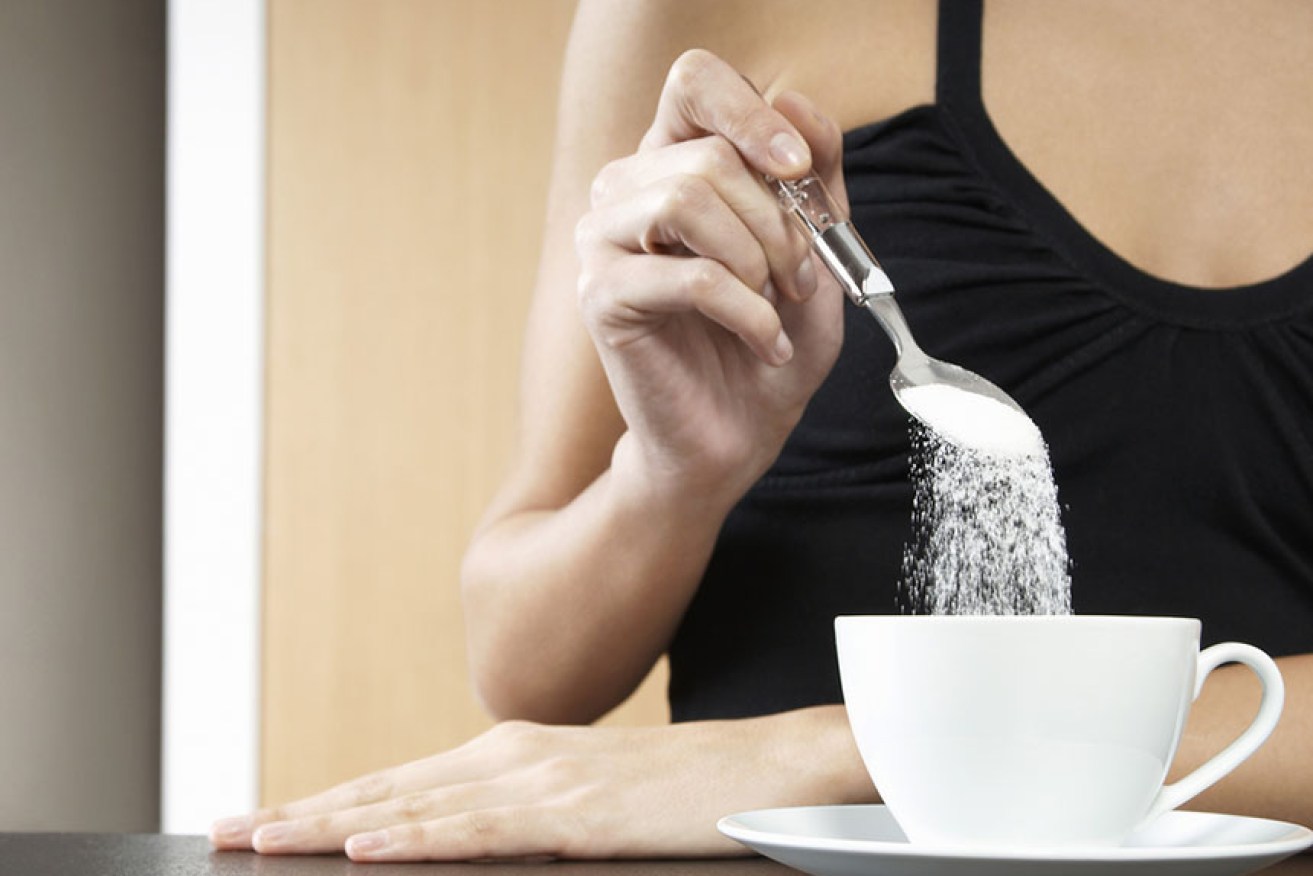How to cut sugar from your diet the healthy way


Shutterstock
Removing vital food groups from your diet is no way to reduce your sugar consumption, health experts say.
Instead, they recommend replacing refined sugars with healthier, natural options.
VicHealth chief executive officer Jerril Rechter says there are plenty of ways to cut back on refined sugar without taking drastic and unhealthy measures.
• Health experts urge sugar-fee challenge
• Cancer has element of luck
• Get it right: How to cook the perfect steak
Ms Rechter says it’s not about starting a fad diet, but rather, a lifestyle change.

Some soft drinks contain excessive amounts of the sweet stuff. Photo: Shutterstock
“Sugary drinks can contain up to 16 teaspoons of sugar,” Ms Rechter says.
“Imagine sitting in a café and putting that many teaspoons of sugar in your coffee – people would think you were crazy.
“It’s about making that change and being conscious about what you‘re putting in your shopping trolley each week.”
Ms Rechter warns that a high sugar diet can have long-term effects on your health, including diabetes, heart disease and even some cancers.
Accredited practicing dietitian, nutritionist and accredited sports dietitian, Sarah Leung, says removing essential elements from your diet could place your health at risk.
“A lot of people go to the extremes and cut out sugar completely, and they’ll often do that by cutting out fruit,” Ms Leung says.
“People need to remember that fruit provides vitamins, minerals and fibre, and it’s high in water so helps with hydration.”
The hidden culprits
Ms Rechter says staple foods stocked in the pantry could contain hidden sugars people aren’t aware of.
Breads and cereals can have high amounts of sugar that can go unnoticed, she says.
“Processed foods have lots of sugar and salt, and there’s lots of hidden sugar in breads and cereals,” Ms Rechter says.

Fruit juice is dense in sugar. Photo: Shutterstock
“Make sure you eat fresh, healthy food daily – that’s the best way to reduce sugar out of the diet.
“This time of year especially a favourite thing to have is a sausage on the barbecue, but tomato sauce contains loads of sugar.”
Ms Rechter says people often reach for a fruit juice or ice tea as a healthier alternative to soft drinks, however they too are high in sugar.
Ms Leung suggests choosing wholegrain or wholemeal breads over white bread, which can also be loaded with hidden sugar.
You are what you drink
There are loads of benefits to replacing sugary drinks with water, Ms Rechter says.
“Drinking more water means you’ll be less cranky during the day,” she says.
“Research shows that dehydration affects your mood and makes you more confused.
“Water makes you think clearer.”
It also helps to reduce joint pain, makes the skin glow and helps regulate the body’s temperature.
The Victorian Government’s Better Health Channel recommends that adult women should consume 2.1 litres of water per day, or about eight cups, where adult men should drink 2.6 litres, or 10 cups each day.
Sugar and your skin
Dr Michael Rich, a leading Australian dermatologist, tells The New Daily that high sugar intake can adversely affect your skin’s health and overall appearance.
“A high sugar diet not only diminishes the completion of one’s skin, it can also age the skin prematurely,” Dr Rich says.
Excessive sugar intake can increase insulin levels, which can cause skin inflammation.
Dr Rich’s suggestion for cutting back on skin-damaging sugars is to eat foods with low glycaemic index (legumes, sweet potato, wholegrains) that keep blood sugar steady.
He also suggests eating regular small meals and a vast array of vegetables in deep and bright colours to provide antioxidants to repair damaged skin.
Healthy alternatives
Popular natural sweetners on the market, such as honey, molasses, stevia and agave syrup, provide a good alternative to refined sugar.
Australian accredited practicing dietitian and author of The Clean Separation, Kara Landau, suggests replacing high sugar foods with healthier options.

Chia seeds. Photo: Shutterstock
“Mini chia puddings are a perfectly sweet addition to a dessert platter, and naturally sweetened banana and coconut muffins are a really healthy treat and a great alternative to cookies or chocolate,” Ms Landau says.
“Toasted coconut chips, dark chocolate dipped pineapple and in-shell pistachios create a perfect balance of texture and flavour without the added kilojoules.”
For those who find the transition from flavoured, sugary drinks to H2O a challenge, spice up a glass of water by adding ginger, or cucumber and mint.
Or have a cold jug of water on hand in the fridge, and keep topping up your glass at home or in the office.
Take the challenge
VicHealth is urging Australians to switch all of their sugary drinks for water this month.
The H3O Challenge aims to help kick our sugary drink habit and prevent the serious health side effects, such as obesity and tooth decay.
Sugar-sweetened beverages are the biggest source of sugars in the Australian diet, says the Victorian government-funded health organisation.
Those aged 18 to 34 are the highest consumers of sugary drinks.
Ms Rechter says research shows your body can only last a few days without water.
“I think people forget sometimes just how important water is,” she says.
Meanwhile, a British campaign that kicked off this week called Change4Life, is asking parents to swap sugary items they give their children with healthier alternatives.
Tips include swapping ice-cream for yoghurt and sugary drinks for sugar-free drinks.
Public Health England national director of health and wellbeing, Professor Kevin Fenton, says: “We are all eating too much sugar and the impact this has on our health is evident.”








